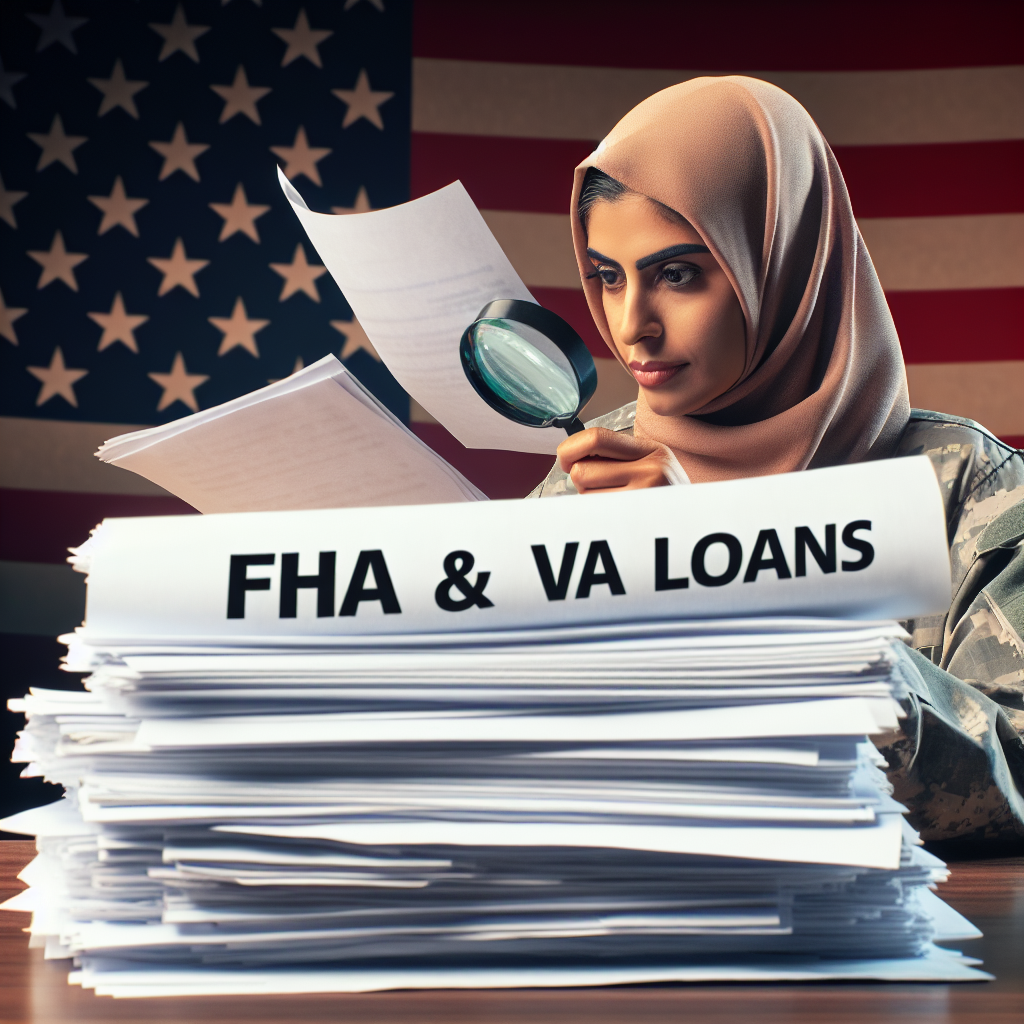When it comes to housing finance, understanding the myriad of options available to veterans can be the key to securing the most beneficial loan terms. Two popular financing options for veterans are the Federal Housing Administration (FHA) loans and Veterans Affairs (VA) loans. This comprehensive guide will delve into the refinancing options available for veterans under these programs, highlighting their unique features, benefits, and eligibility criteria.
What are FHA and VA Loans?
FHA Loans
The FHA loan is a government-backed mortgage designed to assist individuals with lower credit scores in becoming homeowners. It requires a smaller down payment, typically around 3.5%, which makes it an appealing choice for many first-time homebuyers. FHA loans are open to all eligible borrowers, regardless of their military status.
VA Loans
VA loans, on the other hand, are exclusive to veterans, active-duty service members, and certain members of the National Guard and Reserves. Backed by the U.S. Department of Veterans Affairs, these loans provide competitive interest rates, no down payment, and no private mortgage insurance (PMI), making them an excellent option for eligible veterans seeking to purchase or refinance a home.
Why Consider Refinancing?
Refinancing offers a variety of opportunities for veterans in both FHA and VA loans. Whether you’re looking to reduce monthly payments, switch from an adjustable-rate mortgage to a fixed-rate mortgage, or tap into home equity, refinancing can significantly impact your financial situation.
Benefits of Refinancing Your FHA or VA Loan
- Lower Monthly Payments: Refinancing can reduce your interest rate, which directly lowers your monthly mortgage payment.
- Access to Home Equity: A cash-out refinance allows veterans to leverage their home equity for other expenses, such as home renovations, debt consolidation, or educational expenses.
- Switch Loan Types: Veterans can switch from an FHA loan to a VA loan, which can save on mortgage insurance and provide better terms.
- Shorten Loan Term: Refinancing can help veterans shorten their loan term, leading to significant interest savings over time.
Refinancing Options for Veterans
FHA Streamline Refinance
For those with an existing FHA loan, the FHA Streamline Refinance program offers a fast and efficient way to lower payments. Key features include:
- No Credit Check: Borrowers do not need to undergo a credit assessment, which simplifies the process.
- Limited Documentation: Minimal paperwork is required, making it a convenient option for qualifying homeowners.
- No Appraisal Requirement: In most cases, an appraisal is not required, which can speed up the refinancing process.
VA Interest Rate Reduction Refinance Loan (IRRRL)
The VA IRRRL program allows veterans with existing VA loans to lower their interest rates with minimal paperwork. Advantages include:
- No Down Payment: Veterans do not need to put any money down when refinancing.
- No Closing Costs: In many cases, the closing costs can be rolled into the new loan, thereby minimizing upfront expenses.
- Streamlined Process: The process involves less documentation and sometimes does not require a new appraisal.
Cash-Out Refinance
For veterans looking to access their home equity, the cash-out refinance option can be particularly beneficial. This allows homeowners to refinance their existing mortgage for more than they owe and take the difference in cash. Key benefits include:
- Flexible Use of Funds: Veterans can use the cash for home repairs, education, or debt consolidation.
- Lower Interest Rates: VA cash-out refinance loans typically offer competitive interest rates, making them an attractive choice.
Eligibility Criteria for Refinancing
FHA Loan Eligibility
To qualify for an FHA loan refinance, you must:
- Be current on your existing FHA mortgage.
- Have a credit score above 580 for maximum financing (lower scores may qualify but with higher down payments).
- Demonstrate proof of income and employment.
VA Loan Eligibility
For VA refinancing, eligibility requires:
- Previous use of a VA-backed loan.
- A Certificate of Eligibility (COE) showing your status as a veteran or active-duty service member.
- Satisfactory credit history, although VA loans tend to have more relaxed standards than conventional loans.
Conclusion
Exploring FHA and VA loans provides veterans with diverse refinancing options tailored to meet their financial needs. Whether you choose the streamlined processes of FHA Streamline or VA IRRRL programs or prefer the financial flexibility of a cash-out refinance, understanding these options can empower veterans to make informed decisions regarding their home financing.
By carefully considering the benefits and eligibility requirements of each program, veterans can effectively navigate the refinancing process, ultimately leading to significant savings and improved financial stability. Remember to consult with a mortgage professional to find the best refinancing strategy for your unique situation.

